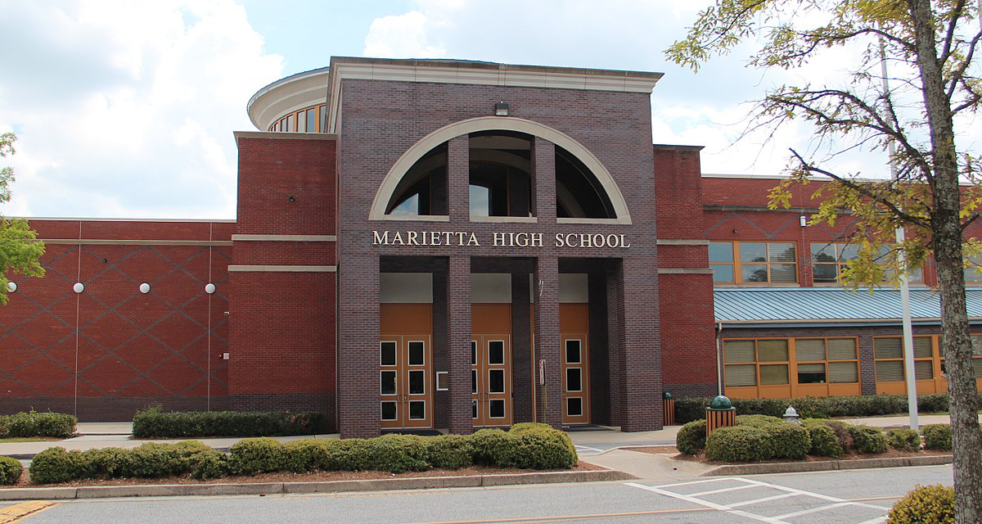Whether it be addressing learning loss, equal access to technology or making sure every kid gets a meal to eat, public schools and communities across the greater Atlanta area have had to adapt after being hit hard by the COVID-19 pandemic, even one year later.
Dr. Grant Rivera, superintendent of Marietta City Schools, was one of the three panelists invited to speak at Tech’s Educational Equity and COVID-19 panel on Feb. 25.
The conversation was between parents, school leaders and grant-makers intended to voice the community’s concerns posed by the pandemic surrounding education.
“We don’t want second-grade kids at home feeling forgotten,” Rivera said.
Monitoring the conversation was Dr. Ruthie Yow, Serve-Learn-Sustain’s (SLS) Learning and Partnerships Specialist, who has researched resegregation in southern schools and its relationship to income disparity and equal access across racial groups.
“It’s critical that we understand that there is no barometer other than the educational success of students of color as to whether or not our public educational institutions are succeeding, “ Yow said, speaking on the pressure placed on schools with a growing number of financially vulnerable students, such as Marietta High School.
According to demographers cited in Yow’s research, U.S. public schools nationwide were predicted to be less than 50% white students by 2020, but this actually happened as early as 2016.
With the number of affluent white students enrolled in public schools shrinking, schools are now looking to visionary school leaders, engaged communities and well-directed funding as part of Yow’s “educational justice puzzle” to support the growing number of students in need, all of which have been critical in the pandemic.
“The disparities that we are seeing now as we look at the data around how well children are doing in our school systems is not something new to the pandemic,” said Ellyn Cochran, Associate Vice President for Early Learning and Development at the United Way of Greater Atlanta.
United Way utilizes a child well-being index, which takes in child, family and community measures to identify high-need neighborhoods across the 13 counties that United Way serves.
Cochran mentioned that when the well-being indices are graphed on a heat map of greater Atlanta, they are almost parallel to a heat map of third-grade reading scores, indicating the correlation between education and racial and socio-economic disparity.
“At United Way, we talk about place, but we cannot talk about place outside of race when we think about education in Atlanta because of the systemic barriers that have long existed in our communities, so that’s where our funding is really directed,” Cochran said.
Cochran highlighted the success of the $25 million in funds raised to support communities and schools throughout the pandemic.
Though grants and projects are beneficial to communities in need, parents such as Melissa Wilson with children at Marietta High School expressed that the community needs time to figure out how to implement them into their lives.
“The pandemic caused a mental shut down for a lot of parents, and the school has been asking us to come to the workshops and participate in the programs that they offer, but the truth is a lot of us haven’t been able to do it because of our schedule or our children’s needs,” Wilson said. “What I wish grantmakers understood is that we just have to learn how to balance. It’s not that we don’t want the program or that we are not interested.”
At the start of the pandemic in March 2020, Georgia public schools were closed without knowing for how long and had to rapidly transition to completely virtual learning. As the pandemic progressed with the help of funds, following CDC guidelines and a collaborative community effort, school systems like Marietta City Schools were able to systematically reopen while acknowledging the diverse spectrum of needs of families across the district.
Rivera took several “surface level” but critical needs of Marietta to make learning during the pandemic successful: meal distribution, device and Internet access and a quality virtual experience.
60% of the students in Marietta are on free or reduced lunch, so the district made the decision to distribute food to the community using 81 different bus stops and with the help of 255 volunteers a week, continue to serve 7000 meals to students every week.
“If you choose to stay home due to family dynamics, health and safety, whatever the case may be, it’s not fair if virtual learning is a subpar experience compared to what is being taught in person,” Rivera said.
In addition, Marietta has issued 5500 Chromebooks and Internet hotspots and has both dedicated in-person teachers and dedicated virtual teachers to ensure that students are able to engage in quality learning no matter their situation, while respecting teachers’ workloads.
“We shouldn’t be fearful that if we address access that we are taking away from one and giving to the other,” Rivera said. “The reality is that our students need a level playing field. We acknowledge that this pandemic ripples across every home differently and we can’t sit in our particular place of privilege and assume that we know what another family is experiencing.”
